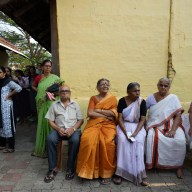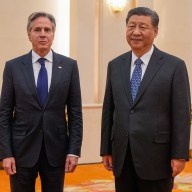MOSCOW (Reuters) – Russia’s suspended athletics federation named a new head on Friday seeking to lift itself from a years-long doping crisis.
The federation endorsed as its new president Yevgeny Yurchenko, a businessman and former deputy regional governor, who was the only candidate after other contenders withdrew.
“We are ready to admit to the problems we had with the doping scandals in Russian athletics,” Yurchenko told reporters after his confirmation.
“We are convinced that our future activities will be aimed at ensuring that such a thing does not repeat itself.”
Russia’s athletics federation was suspended by global athletics’ governing body in 2015 after a report commissioned by the World Anti-Doping Agency (WADA) found evidence of mass doping among track and field athletes.
The federation had been working toward reinstatement when its president and six others were provisionally suspended last November over false explanations and forged documents to justify three missed doping tests by high jumper Danil Lysenko.
The charges prompted World Athletics, the body formerly known as IAAF, to halt the federation’s reinstatement process.
It also barred Russian track and field athletes from competing internationally as neutrals.
The Athletics Integrity Unit (AIU), the body overseeing ethics in the sport, recommended that the federation be expelled from global athletics, a proposal it vigorously rejected.
World Athletics has said the federation could avoid expulsion if its officials admitted to involvement in the Lysenko case.
Russia is also in the process of appealing a four-year ban from competing under its flag at major international events, including this year’s Tokyo Olympics, as punishment for having provided WADA with doctored laboratory data.
The Lausanne-based Court of Arbitration for Sport (CAS) said on Thursday that Russia’s appeal will not be heard before the end of April and will be closed to the public.
(Reporting by Alexander Reshetnikov and Gabrielle Tétrault-Farber; Additional reporting by Dmitry Turlyun; Editing by Andrew Cawthorne)















